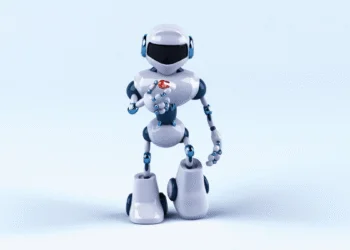In Dalian, a city on China’s northeastern coast, engineers at Ex-Robots are developing humanoids that emphasize facial expressions and emotions. These robots are created for display in museums. One such museum is located in the same building as the factory. Ex-Robots Chief Executive Li Boyang believes that humanoid robots will significantly impact the healthcare and education industries. He further added, “Psychological counselling and health are certainly future application scenarios. We are researching auxiliary treatments and preliminary screenings for emotional and psychological disorders.”
What Are Humanoids by Ex-Robots?
Humanoids are usually non-human entities with human form or characteristics. The developed robot is multi-modal and capable of emotional expression. It can perceive the surrounding environment and produce appropriate facial feedback.
According to the Reuters report, Neck-length silicone masks lie sprawled on a table alongside silicone arms and feet, while disembodied heads sit on display and humanoid robots in various stages of construction stand nearby. Drawings of robot designs adorn a wall.
China Creates World’s First 3D e-Skin, Helping robots feel human-like sensing touch
“We have our own software and algorithm teams,” said Ex-Robots Chief Executive Li Boyang, adding that humanoid robots are the most complex class of robotic products.
“There are many basic models and algorithms that are commonly open source, which everyone uses. However, we concentrate more on how to enable the AI to recognise and express expressions and emotions.”
According to reports, it takes from two weeks to a month to produce a humanoid robot, with prices ranging from 1.5 million yuan ($207,000) to 2 million yuan. The main purpose of the company’s robots so far is for display in museums, one of which Ex-Robots has housed in the same building as its factory
Looking ahead, Li believes humanoid robots will have a bigger role to play in the healthcare and education industries. “Psychological counselling and health are certainly future application scenarios. We are currently conducting related research, such as auxiliary treatment and preliminary screening for emotional and psychological disorders,” he said.
What Is Malar? All About World’s First Autonomous AI University Professor


















